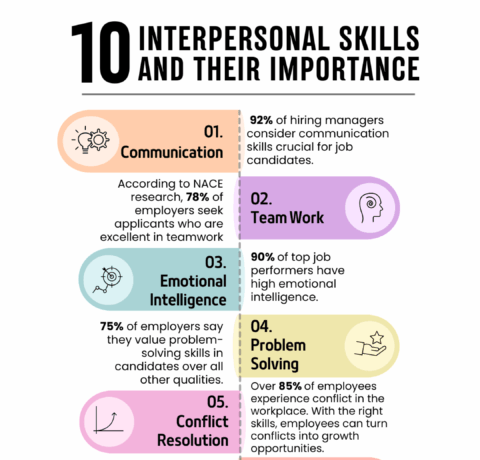The Super Teens Of The 21st Century Infographic
Super active.
Super busy.
Super stressed.
Modern teens are over-stimulated and over-burdened, and it's leading to an epidemic of insomnia and stress. The average teen achieves between 3 and 5 hours of sleep per night. With 24 hours in a day, you must be asking yourself what exactly is taking up all their time...
On average it equates to 7 hours at school, 1.5 hours of homework, 20 minutes of housework, 45 minutes of paid work, 9 hours of media time, and a potential 5 hours of sleep. However, academic and social pressure is likely to reduce the number of hours of sleep to just 3 or 4, with common causes of sleep deprivation cited as stress and anxiety, alcohol and drug abuse, studying until late at night, and disrupted sleeping and eating patterns.
By the time we reach adulthood we are used to experiencing stress, and many of us have developed ways of coping with it and managing it effectively. From healthy stress management techniques like yoga and meditation, to less healthy methods like alcohol and drugs, we all have our own ways of handling stress when it builds up.
Teenagers, on the other hand, often feel the same amounts of stress as adults, or even more in some cases; however, teens have often not matured enough to be able to cope with large amounts of stress, and it can therefore have a negative impact on their health and wellbeing.
What is stress? Stress is your body's way of responding to challenges. When faced with a stressful situation, your body produces cortisol, a hormone that helps give you the strength, energy, and focus to act on your fight or flight instincts. In small amounts, stress gives you the motivation to get things done.
However, if problems aren't dealt with and your stress isn't managed properly it can build up and begin to manifest itself in a number of negative ways.
So what causes stress in teens? Teenagers aren't responsible for paying the mortgage and bills, doing the weekly food shop, planning meals, and budgeting for the household etc. However, that's not to say that these things don't inadvertently lead to elevated stress levels on top of the main things that cause them stress. Some of the things that might be causing your teen undue stress include:
School and academic life:
The number one stressor amongst teens is the constant pressure to do well at school. Many young people are trying to balance exam revision and homework with extracurricular activities and school sports teams, as well as family and peer commitments and getting enough sleep.
Social and peer pressure:
Aside from academic stress, one of the main things that can stress a teen out is fitting in with their peers. Some teens find it hard to make friends, so many may find themselves going to extreme lengths to impress their peers and get people to like them. They may do things that go against their morals, such as taking drugs or drinking alcohol, but peer pressure is a strong force to reckon with.
Family problems:
The teenage years are a delicate period, and your teen is very sensitive to changes in their environment. Arguments and tension between siblings, disagreements with parents, and a lack of parental attention can all cause a teen to feel stressed. As much as you try to shield them from your own worries and tensions, they will pick up on it and will feel just as stressed as you do.
Physical changes:
Teenagers are going through puberty and experiencing lots of scary and new things happening to their bodies. Hair sprouts in new places, hips change shape, voices lower, pimples appear on the face; teens are very self-conscious and all these changes can stress them out a lot.
Other things that can cause stress in teenagers include low self esteem, traumatic events, changes in routine, romantic relationships, loss or bereavement, and family financial problems, among others.
How to spot the signs of stress in teens
If your teen is suffering from stress they may begin to exhibit many of the following signs and symptoms:
- Emotional: Feeling sad, hopeless, and down; being moody or grumpy; feeling worthless or having low self-esteem; finding it hard to relax; getting more angry than usual; crying and experiencing mood swings.
- Behavioural: Nervous or anxious behaviour; withdrawing from family or peer activities; comfort eating or eating less than before; sleeping for longer periods of time; having less energy than usual; caring less about their appearance; being more aggressive than usual.
- Cognitive: Difficulty concentrating and staying focused; being more irrational then before; getting easily confused; getting lost in thought or unable to keep up with a conversation; difficulty remembering things; making errors in judgement; being more unorganised.
Stress management tips for teens
Don't let stress begin to build up to a level where it has the opposite of its intended effect. Too much stress can impede your quality of life by manifesting itself in sleep problems, comfort eating, skipping meals, and using drugs or alcohol as a crutch. You can manage your stress in a much healthier way by following these tips...
- Exercise: Physical activity has a number of great benefits when it comes to managing stress. Aerobic exercise triggers the release of endorphins, aka the happy hormones, which help to lift your mood and make you feel good. Doing an activity with friends adds a social component so you'll be spending time with others, having fun, and strengthening your cardiovascular system at the same time.
- Sleep: Ok so we know that teens are super busy and average about 4 or 5 hours sleep a night, but it's really important to try and get at least a few good nights' sleep each week to recharge your batteries. Avoid caffeine late in the day, and wind down in the evening with a warm bath, followed by a glass of warm milk and a good book. Try to avoid watching TV or using your phone or laptop for an hour or so before bed to help your brain switch off.
- Eat: We all know the old adage that you are what you eat, but many of us brush it off as unimportant. However, what you fuel your body with has a direct correlation to how well it will perform. Fill it full of processed junk food and you'll feel sluggish and lethargic; fill it with lean meats, oil fish, vegetables, and whole grains and it'll run like a prestige car run on premium diesel.
- Drink: Your body is made up of around 70% water, so it's vital that you remain well0-hydrated if you want to equip your body to cope with life's pressures. Dehydration can affect your concentration, make you feel tired, and cause dizziness and light-headedness. Aim to drink at least 1.5 litres of water each day, and avoid alcohol and caffeine as much as possible as they are diuretics and can make dehydration worse.
- Hobby: As busy as your day is with all the school work, it's important that you take some time out to enjoy a hobby and relax for a while. Whether you enjoy playing the guitar, doing jigsaw puzzles, cooking, or drawing, make sure you take at least half an hour out of your day to indulge in some ‘me time' and do something that makes you happy. This is one of the best ways to relax, calm down, and reset your batteries.







You can adjust your cookie preferences here.